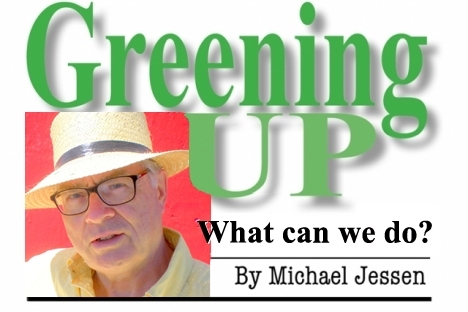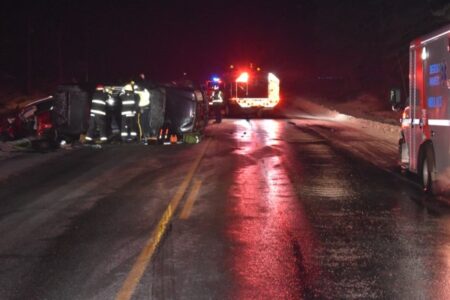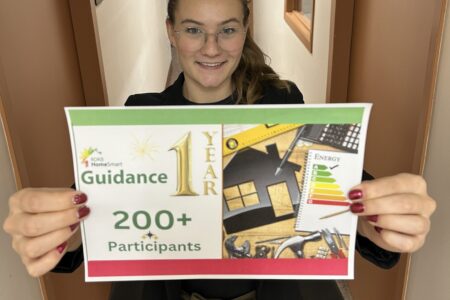Is climate change just a fable?
“Waiting for others to act is not a solution – it compounds the problem. Taking refuge in the status quo because others refuse to change is not an answer. It’s avoiding responsibility and being generationally selfish.” – quote from 2008 Throne Speech
Christy Clark’s new B.C. Climate Leadership plan is beyond bland. It is insufficient, inaccurate, inappropriate, inferior, and lacklustre.
When a climate plan is released on a Friday as the Summer Olympics approaches its climax, you can pretty much guarantee that it contains little substance.
One question comes to mind – why release a plan that is so weak?
As Martyn Brown (ex-premier Gordon Campbell’s former chief of staff) writes: “It has offered no materially new actions to combat climate change or to hold future governments accountable for moving B.C. to a low-carbon economy.”
Years of inaction since the carbon tax was frozen at 2012 levels are going to be followed by more years of inaction.
Meanwhile, temperatures this year are hitting all-time highs. NASA’s Gavin Schmidt announced that ‘July was absolutely the hottest month since instrumental records began.’
In addition, sea levels are rising, the Arctic is melting, coral reefs are dying. Yet Christy Clark is oblivious to the heat.
The premier’s plan reminds me of Aesop’s fable The Tortoise and the Hare.
Like the hare, Clark is boastful; her government has the highest broad-based, revenue-neutral carbon price in the land and she challenges other jurisdictions to catch up before she will wake up from her nap and raise it like she was urged by her appointed climate leadership team. Why the wait?
Increasing the price on carbon to reflect the real costs of climate pollution will increase the price of energy accordingly and give an economic signal for greater investments in energy efficiency and renewable energy sources.
Clark’s professed concern for family finances could have been alleviated by adopting the proposed carbon fee and dividend plan espoused by the Citizens’ Climate Lobby.
The Green Party has already endorsed carbon fee and dividend on the federal level and either the Greens and/or the NDP will have to adopt such an approach in their platform if they wish to have a chance in the upcoming 2017 election.
“Government will encourage smart developments that minimize waste and increase affordability through better use of land, energy, water and building design.” – quote from 2008 Throne Speech
But like the tortoise, Clark is also slow and steady. Her plan calls for taking incremental steps to make buildings ready to be net zero by 2032. An average B.C. house creates two tonnes CO2e (carbon dioxide equivalent) per year.
The fact is that zero net energy houses and commercial buildings are being retrofitted and constructed across Canada at this very moment. Many European countries have a 2020 target year to reach such standards. Why the wait?
“For every 1% improvement in energy efficiency, B.C.’s public sector organizations save about $4 million annually in fuel costs.” This is a direct quote from an August 11 Ministry of Environment fact sheet.
In B.C., buildings account for about 29% of final energy demand and 10% of greenhouse gas emissions. In Canada, the total energy consumption of homes and buildings accounts for nearly a quarter of our national GHG emissions.
Numerous studies have identified the building sector as the area with some of the largest and most cost-effective emission abatement opportunities.
Eleven organizations wrote to Minister of Natural Resources, Jim Carr, and Minister of Environment and Climate Change, Catherine McKenna, in August urging the creation of a national plan for energy-efficient buildings.
Investments in the building sector create more jobs per dollar invested than investments in resource extraction or the energy sector.
Calculations show that for every $1 paid out in retrofit incentives in B.C., the provincial government can collect more than $2 in taxes – employment taxes paid by workers, business taxes paid by the companies doing the retrofit work, PST taxes paid on materials and appliances purchased for the retrofits, and taxes paid along the supply chain due to the increased economic activity.
“Carbon-smart communities are energy-smart, water-smart, health-smart and resource-smart. They are communities designed for human needs at the lowest ‘lifecycle’ cost and highest long-term benefit possible – with the least impact possible on our environment.” – quote from 2008 Throne Speech
A $1 billion federal building retrofit program combined with $1 billion in complimentary incentives from the B.C. government would provide a minimum of 350,000 person years of employment and generate $5 billion in tax revenue according to a 2011 estimate by the Heating, Refrigeration and Air Conditioning Institute of Canada.
A study conducted for NRCan in 2014 shows high energy efficiency programs would return five to eight dollars for every one dollar invested.
The study estimated that $1.9 billion to $8.5 billion spent on energy efficiency programs across Canada could result in annual GDP and job growth potential at between $19 billion and $48 billion, and between 100,000 and 300,000 jobs, respectively.
Clark’s new leadership plan has built environment initiatives that will create 230 jobs and $19 million in economic activity.
While touting a proposed 25 million tonne reduction in greenhouse gas emissions below current forecasts by 2050, the plan estimates only up to 66,000 jobs will be created in the next 10 years. This is pitiful compared to what is achievable with real action.
The word on the street is that Environment Minister Mary Polak and others in government wanted a stronger Climate 2.0 but the premier nixed those aspirations. So the blame for this uninspiring climate plan rests solely on her shoulders.
In 2016 the ambitions and targets espoused in 2008 are a distant memory. All I can hope for is that Clark is hare today and gone tomorrow.
“By living smarter, we can save on energy, water and fuel consumption. We can reduce waste and get better value from our land, our limited natural resources and our tax dollars.” – quote from 2008 Throne Speech
Michael Jessen is an eco-writer and sustainability consultant living at Longbeach near Balfour, BC. His business Zero Waste Solutions helps individuals, businesses and communities make sustainable choices in day-to-day management and utilization of resources. Learn more at www.zerowaste.ca or www.michaeljessen.ca. Michael can be reached by email at zerowaste@shaw.ca























Comments